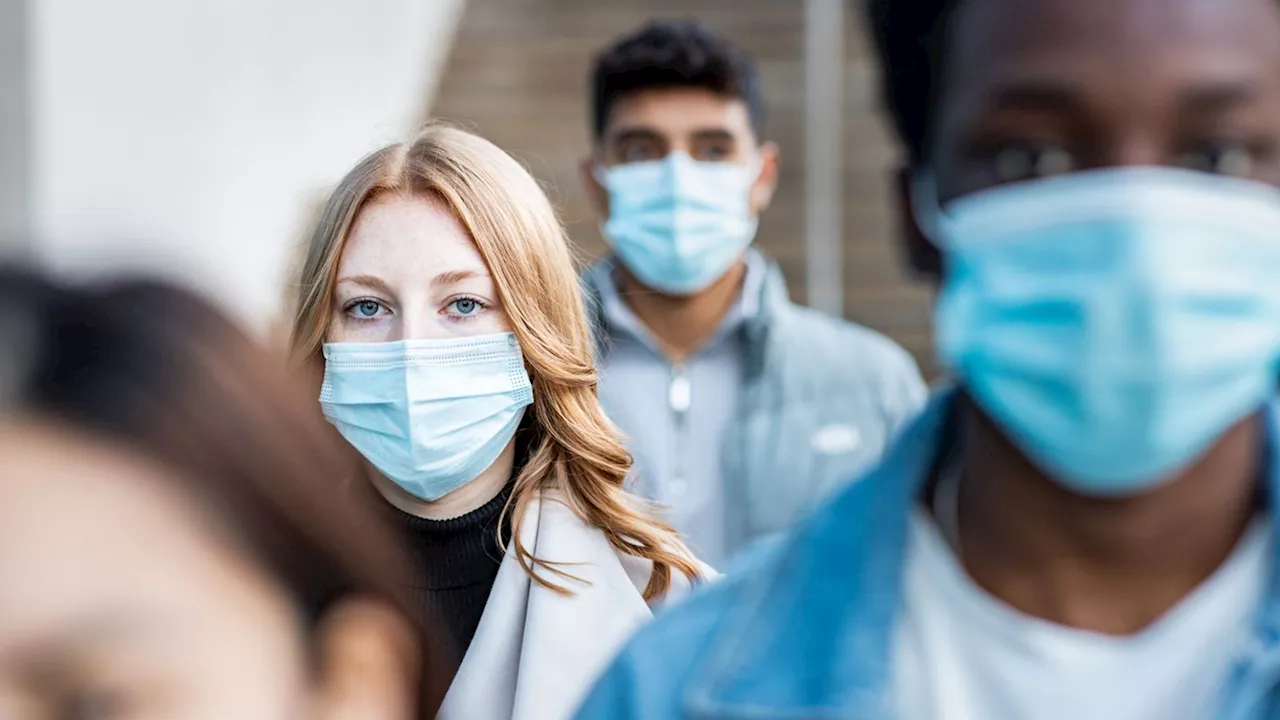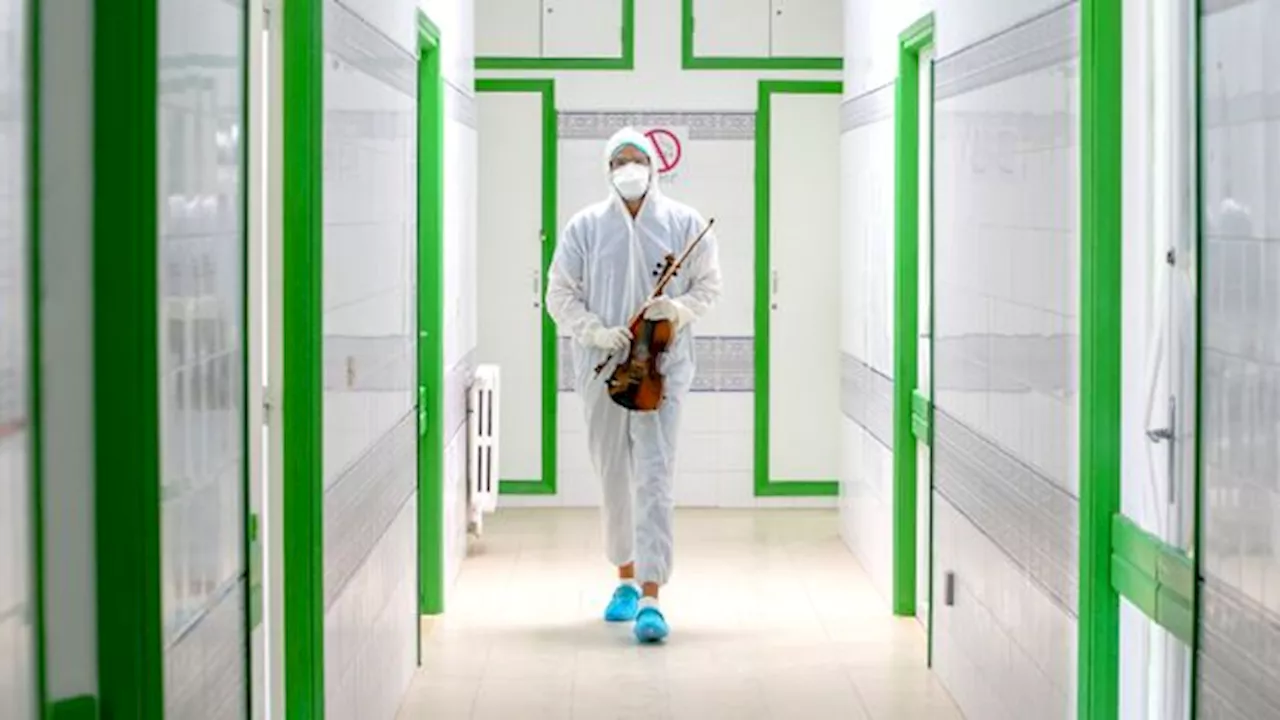Although Covid-19 cases are widespread, hospitalizations are surprisingly low. Experts are baffled by this trend and speculate that the virus may be evolving towards a milder form.
Covid-19 is now ubiquitous – but hospitalisations seem to be on a downward trajectory. No one knows why., a process where two other variants had forged their genetic material together. Tests seemed to indicate that this would easily allow it to evade the immune protection offered by past infections or the latest iterations of the Covid-19 vaccines, based on the older JN.1 and KP.2 variants.
At the Icahn School of Medicine at Mount Sinai in New York, microbiology associate professor Harm Van Backel is a co-leader of the, which applies the latest genomics technologies to conduct real-time tracking of bacterial, viral and fungal infections within the Mount Sinai health system. Van Backel explains that the data shows that Covid is contributing relatively little to the caseload so far this winter, despite the emergence of XEC.
"We started doing air sampling at a lot of sites around the university, and it's pretty rare that we could pull out a sample from around the students and not detect Covid," he says. "We're still getting exposed all the time, but most infections are probably just getting blunted." Chin-Hong says that there are two possibilities. One is that the vast majority of people have now been both vaccinated and infected so many times that their bodies have developed a powerful immune memory of what the virus now looks like, meaning that new infections are swiftly removed before they can penetrate deeper into the body. He believes that the"Even if Covid gets in, right now it's going to be identified and kicked out of the body pretty efficiently," says Chin-Hong.
"They aren't as prevalent as they once were, but we still occasionally detect some of these strains from the first year or two," says Johnson. "We know that there's people who have a Delta infection . If one of those older strains broke out and started spreading more widely, people's immunity would be kind of confused because it would look so different from everything we've seen in the past three years.
"A lot of the bat coronaviruses, that's how they spread," says Johnson. "Interestingly, the evolutionary ancestors of Covid were not respiratory viruses, they were enteric viruses , spread via faecal-oral routes such as contaminated food, water or interpersonal contact. So it's possible that Covid could become an entirely food-borne pathogen, but that's probably not happening any time soon.
COVID-19 Hospitalizations Variants Immunity Milder Disease
United Kingdom Latest News, United Kingdom Headlines
Similar News:You can also read news stories similar to this one that we have collected from other news sources.
 China Sees Surge in HMPV Pneumonia Cases, Linked to Covid Immunity DebtA recent rise in HMPV pneumonia cases in China has sparked concerns about the impact of Covid-19 lockdowns on population immunity. Scientists suggest that the reduced social mixing during the pandemic led to a decrease in exposure to various pathogens, resulting in a higher susceptibility to infections as social interactions resumed. This phenomenon, known as immunity debt, may explain the surge in cases of HMPV and other respiratory illnesses.
China Sees Surge in HMPV Pneumonia Cases, Linked to Covid Immunity DebtA recent rise in HMPV pneumonia cases in China has sparked concerns about the impact of Covid-19 lockdowns on population immunity. Scientists suggest that the reduced social mixing during the pandemic led to a decrease in exposure to various pathogens, resulting in a higher susceptibility to infections as social interactions resumed. This phenomenon, known as immunity debt, may explain the surge in cases of HMPV and other respiratory illnesses.
Read more »
 Whooping Cough Cases Surge in the US, Public Awareness LagsCases of whooping cough are on the rise in the United States after a decline during the pandemic. The CDC reports over 28,000 cases so far this year. A new survey reveals that many Americans are not familiar with the disease's symptoms or the availability of a vaccine.
Whooping Cough Cases Surge in the US, Public Awareness LagsCases of whooping cough are on the rise in the United States after a decline during the pandemic. The CDC reports over 28,000 cases so far this year. A new survey reveals that many Americans are not familiar with the disease's symptoms or the availability of a vaccine.
Read more »
 NHS facing winter pressure as flu cases surgeHospital flu cases in England have already surpassed last year's peak, with one in 18 beds occupied by patients with the virus. With the Christmas break approaching, experts warn of further spread, adding to existing pressures on the NHS from norovirus and RSV. The NHS has opened more beds than ever before, but bed occupancy remains high.
NHS facing winter pressure as flu cases surgeHospital flu cases in England have already surpassed last year's peak, with one in 18 beds occupied by patients with the virus. With the Christmas break approaching, experts warn of further spread, adding to existing pressures on the NHS from norovirus and RSV. The NHS has opened more beds than ever before, but bed occupancy remains high.
Read more »
 Doctor explains key difference between cold and flu as cases surgeWith more than 17 million flu vaccinations administered this year in the UK, cases are still surging across the UK in the run-up to Christmas, so it's important to know the difference
Doctor explains key difference between cold and flu as cases surgeWith more than 17 million flu vaccinations administered this year in the UK, cases are still surging across the UK in the run-up to Christmas, so it's important to know the difference
Read more »
 NHS Urges Stay-at-Home Measures as Norovirus Cases SurgeThe National Health Service (NHS) is advising the public to remain at home if they experience symptoms of vomiting or diarrhea as norovirus infections peak.
NHS Urges Stay-at-Home Measures as Norovirus Cases SurgeThe National Health Service (NHS) is advising the public to remain at home if they experience symptoms of vomiting or diarrhea as norovirus infections peak.
Read more »
 South Wales Hospitals Reimpose Mask Rules Amid Surge in Flu CasesHospitals in South Wales are reintroducing mask mandates due to concerns over rising flu cases. This 'quad-demic' of illnesses includes norovirus, flu, COVID-19, and respiratory syncytial virus (RSV). The surge in flu cases is putting a strain on hospitals and leading to ward closures and restrictions on visitors.
South Wales Hospitals Reimpose Mask Rules Amid Surge in Flu CasesHospitals in South Wales are reintroducing mask mandates due to concerns over rising flu cases. This 'quad-demic' of illnesses includes norovirus, flu, COVID-19, and respiratory syncytial virus (RSV). The surge in flu cases is putting a strain on hospitals and leading to ward closures and restrictions on visitors.
Read more »
